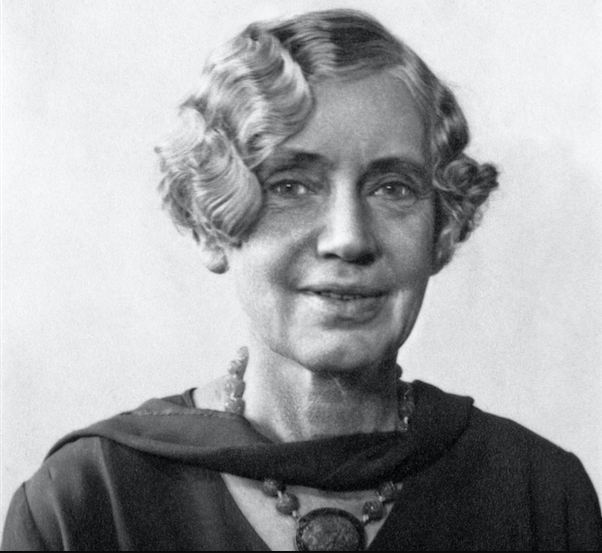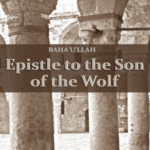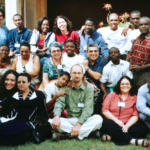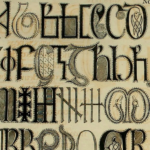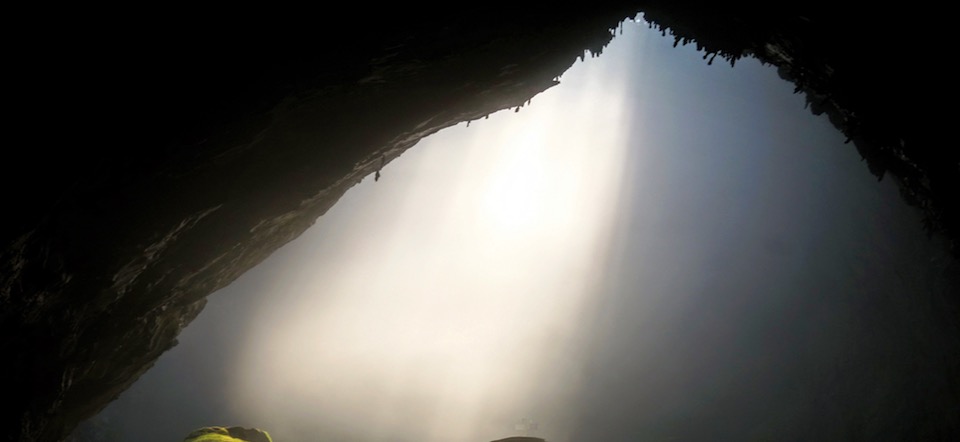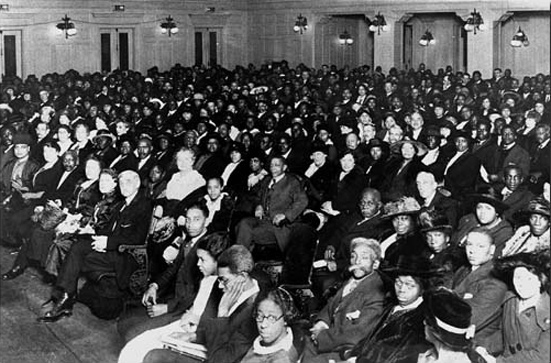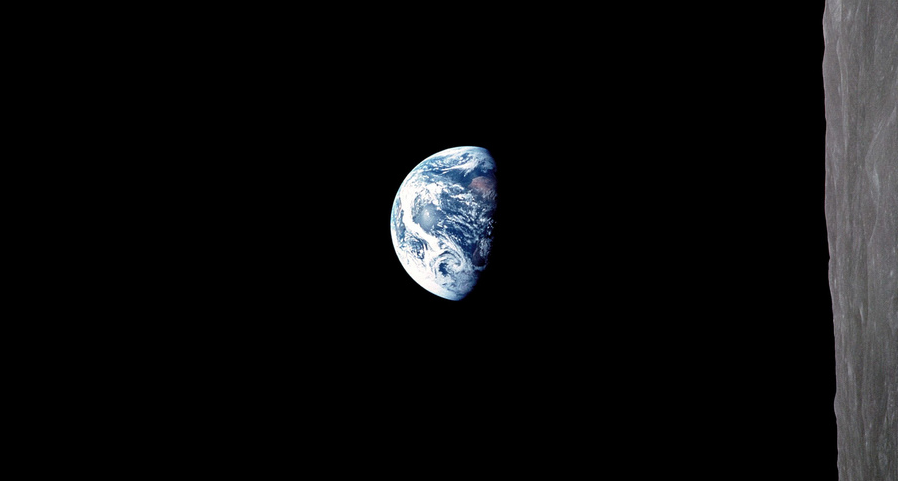
Oneness of Humanity — Reconstruction and Demilitarisation of the Entire World

When you say you believe in the oneness of humanity, sometimes people think you are making a “motherhood and apple pie” statement. “Let’s all love each other”. It’s true that in one sense that’s exactly what it means. But it also implies far more. Shoghi Effendi, Bahá’u’lláh’s great-grandson, in the 1930’s and in the lead up to World War II, provided an analysis of the implications of this principle.
Let there be no mistake. The principle of the Oneness of Mankind — the pivot round which all the teachings of Bahá’u’lláh revolve — is no mere outburst of ignorant emotionalism or an expression of vague and pious hope…. It calls for no less than the reconstruction and the demilitarization of the whole civilized world — a world organically unified in all the essential aspects of its life, its political machinery, its spiritual aspiration, its trade and finance, its script and language, and yet infinite in the diversity of the national characteristics of its federated units.[1]
As Bahá’u’lláh states:
The earth is but one country, and mankind its citizens.[2]
Such a concept of a unified world may evoke two kinds of responses.
The first is hopelessness or cynicism about human capacity to ever achieve such a thing. Yet human beings have already achieved the impossible, and we are able to create a peaceful and unified world. In 1875, during Bahá’u’lláh’s lifetime, ‘Abdu’l-Bahá wrote the following:
A few, unaware of the power latent in human endeavor, consider this matter as highly impracticable, nay even beyond the scope of man’s utmost efforts. Such is not the case, however. On the contrary, thanks to the unfailing grace of God, the loving-kindness of His favored ones, the unrivaled endeavors of wise and capable souls, and the thoughts and ideas of the peerless leaders of this age, nothing whatsoever can be regarded as unattainable. Endeavor, ceaseless endeavor, is required. Nothing short of an indomitable determination can possibly achieve it. Many a cause which past ages have regarded as purely visionary, yet in this day has become most easy and practicable. Why should this most great and lofty Cause — the daystar of the firmament of true civilization and the cause of the glory, the advancement, the well-being and the success of all humanity — be regarded as impossible of achievement?[3]
An associated misconception is the assumption that once we solve all the other problems, then we will be in a position to achieve human unity. Bahá’u’lláh observes that the opposite is the case.
The well-being of mankind, its peace and security, are unattainable unless and until its unity is firmly established.[4]
Disunity is the engine driving human suffering. And such suffering will continue to be generated so long as humanity remains disunited.
Another response to the concept of world unity as it relates to global governance is the misconception that it must inevitably be oppressive. Of course such a view projects the shortcomings of current limited forms of governance into a future we have yet to experience. Again Shoghi Effendi provides helpful insight. He referred to the following advice that ‘Abdu’l-Bahá had given an official of a national government.
You can best serve your country … if you strive, in your capacity as a citizen of the world, to assist in the eventual application of the principle of federalism, underlying the government of your own country, to the relationships now existing between the peoples and nations of the world.[5]
Why should systems which have served well at the national level not also be capable of fostering human welfare at a global level?
A more subtle misunderstanding is the misapprehension that we are now the beneficiaries of the best imaginable organization of human affairs — that our times are just. As Bahá’u’lláh wrote:
… the strife that divideth and afflicteth the human race is daily increasing. The signs of impending convulsions and chaos can now be discerned, inasmuch as the prevailing order appeareth to be lamentably defective.[6]
Certainly governance has improved compared, for example, with 200 years ago. And while none can doubt the many advances in human welfare in the last two centuries for parts of humanity, it is equally true that those benefits remain grossly maldistributed. Many human beings are not the beneficiaries of our current ways of being. Rather, they are its victims. How many the human beings who suffer economic deprivation in every country? How many suffer from war or other forms of oppression? Even those who live in the most affluent and peaceful parts of the world live under the ever present threat of war. A threat that hangs not only over their own lives but also the lives of their children. What is not visible is how much human potential is stolen away in the constant preparation for and investment in war. What would the human condition be today if all of humanity’s knowledge and effort had been focussed on peaceful applications? Shoghi Effendi is again incisive.
The call of Bahá’u’lláh is primarily directed against all forms of provincialism, all insularities and prejudices. If long-cherished ideals and time-honored institutions, if certain social assumptions and religious formulae have ceased to promote the welfare of the generality of mankind, if they no longer minister to the needs of a continually evolving humanity, let them be swept away and relegated to the limbo of obsolescent and forgotten doctrines. Why should these, in a world subject to the immutable law of change and decay, be exempt from the deterioration that must needs overtake every human institution? For legal standards, political and economic theories are solely designed to safeguard the interests of humanity as a whole, and not humanity to be crucified for the preservation of the integrity of any particular law or doctrine.[7]
Image Credit: NASA. Earth Rise taken in 1968 by US Astronaut William Anders
This article is the 39th in a series of what I hope will become 200 articles in 200 days for the 200th anniversary of the birth of Bahá’u’lláh. The anniversary is being celebrated around the world on 21 and 22 October 2017. The articles are simply my personal reflections on Bahá’u’lláh’s life and work. Any errors or inadequacies in these articles are solely my responsibility.
Farsi Translation:
دوستان عزيز
خوشبختانه انانيكه مايلند ميتوانند اين مقالات را در وبسايت “تارنماى” زير بفارسى مطالعه فرمايند.
http://www.noghtenazar.org/node/1516

